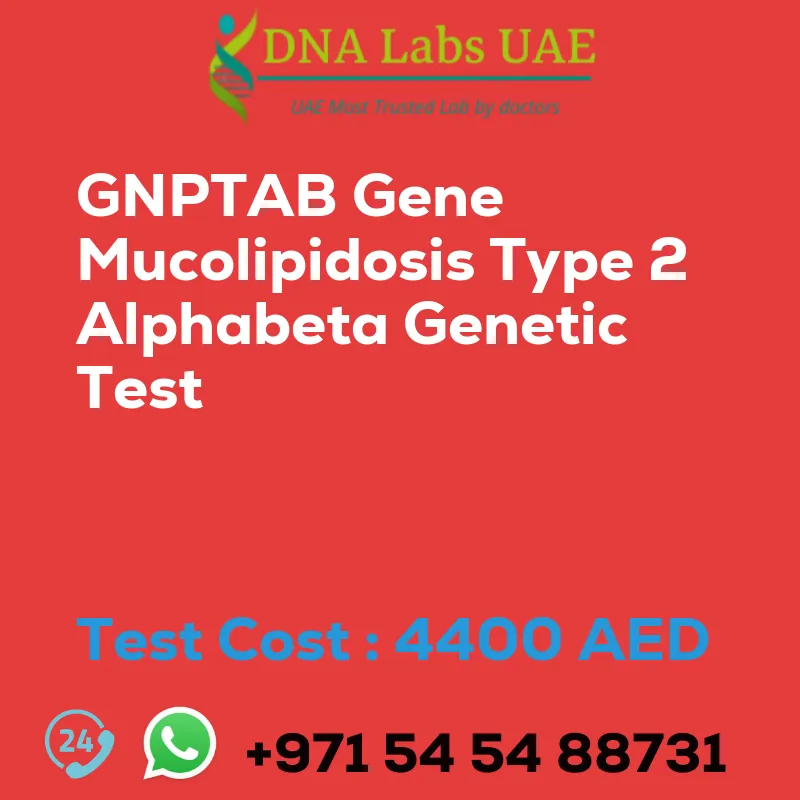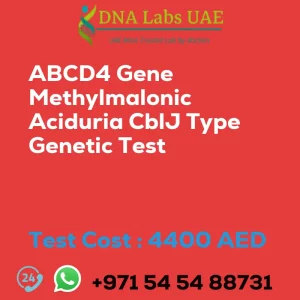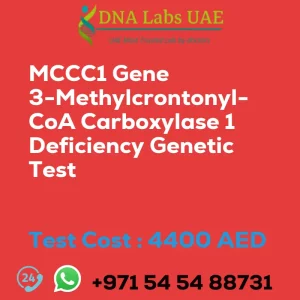GNPTAB Gene Mucolipidosis Type 2 Alpha/Beta Genetic Test
Test Name: GNPTAB Gene Mucolipidosis Type 2 Alpha/Beta Genetic Test
Components: DNA Labs UAE offers this genetic test at a price of 4400.0 AED.
Sample Condition: The test requires either blood, extracted DNA, or one drop of blood on an FTA card.
Report Delivery: The test results are typically delivered within 3 to 4 weeks.
Method: The test utilizes NGS (Next-Generation Sequencing) technology.
Test Type: This genetic test focuses on metabolic disorders.
Doctor: The test can be requested by a general physician.
Test Department: The test falls under the genetics department.
Pre Test Information: Prior to the test, a clinical history of the patient is required. A genetic counseling session may also be conducted to draw a pedigree chart of family members affected by Mucolipidosis Type 2 Alpha/Beta.
Test Details:
The GNPTAB gene is responsible for producing a protein called alpha/beta subunit of N-acetylglucosamine-1-phosphate transferase, which plays a role in the processing and transport of enzymes within cells. Mutations in the GNPTAB gene can result in a rare inherited disorder known as mucolipidosis type 2 alpha/beta. This condition affects the lysosomes, which are cellular compartments responsible for breaking down waste materials.
Mucolipidosis type 2 alpha/beta is characterized by developmental delay, intellectual disability, skeletal abnormalities, and organ dysfunction. Symptoms typically manifest in infancy or early childhood and can vary in severity.
NGS genetic testing is a method that allows for the simultaneous analysis of multiple genes, providing a comprehensive evaluation of an individual’s genetic makeup. In the case of mucolipidosis type 2 alpha/beta, NGS genetic testing can identify mutations in the GNPTAB gene associated with the condition. This type of genetic testing aids in the diagnosis of individuals with mucolipidosis type 2 alpha/beta, confirmation of specific mutations, and determination of the likelihood of passing the condition on to future generations. It can also be used for carrier screening in individuals with a family history of the condition.
It is crucial to consult with a healthcare professional or genetic counselor to fully understand the benefits, limitations, and implications of genetic testing before undergoing any testing procedure.
| Test Name | GNPTAB Gene Mucolipidosis type 2 alphabeta Genetic Test |
|---|---|
| Components | |
| Price | 4400.0 AED |
| Sample Condition | Blood or Extracted DNA or One drop Blood on FTA Card |
| Report Delivery | 3 to 4 Weeks |
| Method | NGS Technology |
| Test type | Metabolic Disorders |
| Doctor | General Physician |
| Test Department: | Genetics |
| Pre Test Information | Clinical History of Patient who is going for GNPTAB Gene Mucolipidosis type 2 alpha/beta NGS Genetic DNA Test A Genetic Counselling session to draw a pedigree chart of family members affected with Mucolipidosis type 2 alpha/beta |
| Test Details |
The GNPTAB gene is responsible for producing a protein called alpha/beta subunit of N-acetylglucosamine-1-phosphate transferase, which is involved in the processing and transport of enzymes within cells. Mutations in the GNPTAB gene can lead to a condition called mucolipidosis type 2 alpha/beta. Mucolipidosis type 2 alpha/beta is a rare inherited disorder that affects the lysosomes, which are compartments within cells that break down waste materials. This condition is characterized by developmental delay, intellectual disability, skeletal abnormalities, and organ dysfunction. Symptoms typically appear in infancy or early childhood and can vary in severity. NGS (Next-Generation Sequencing) genetic testing is a method used to analyze multiple genes simultaneously, providing a comprehensive evaluation of an individual’s genetic makeup. In the context of mucolipidosis type 2 alpha/beta, NGS genetic testing can identify mutations in the GNPTAB gene that are associated with the condition. This type of genetic testing can help diagnose individuals with mucolipidosis type 2 alpha/beta, confirm the presence of specific mutations, and provide information about the likelihood of passing the condition on to future generations. It can also be used for carrier screening in individuals with a family history of the condition. It is important to consult with a healthcare professional or a genetic counselor to understand the benefits, limitations, and implications of genetic testing before undergoing any testing procedure. |








